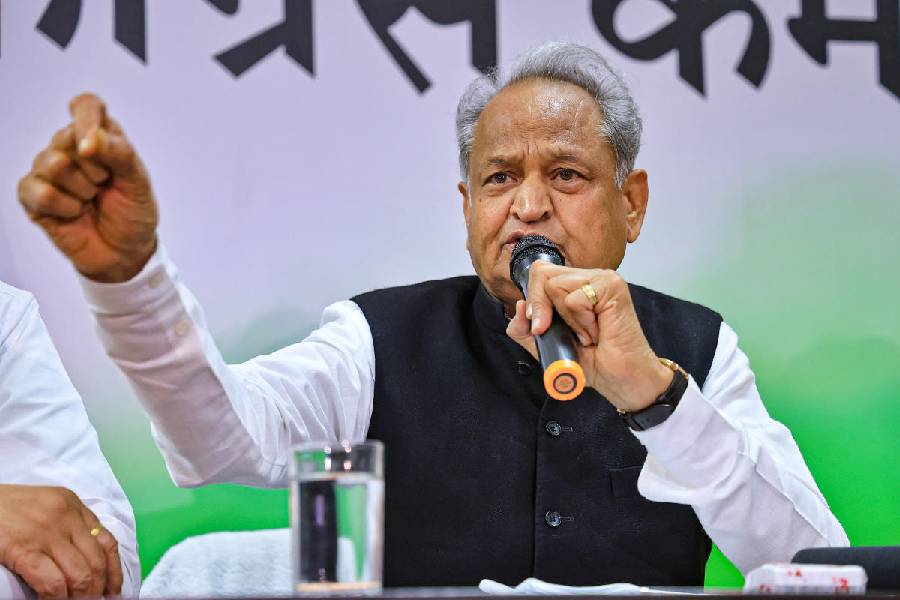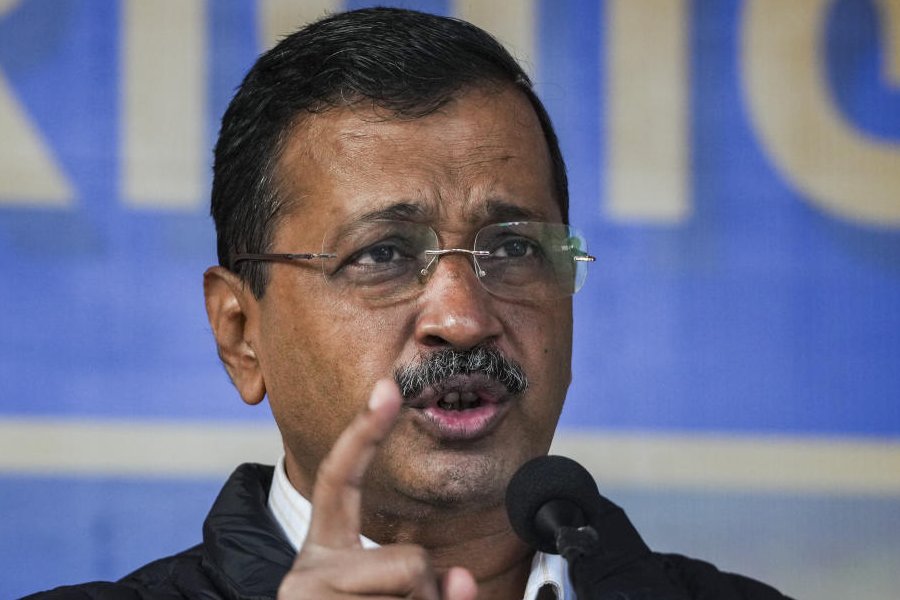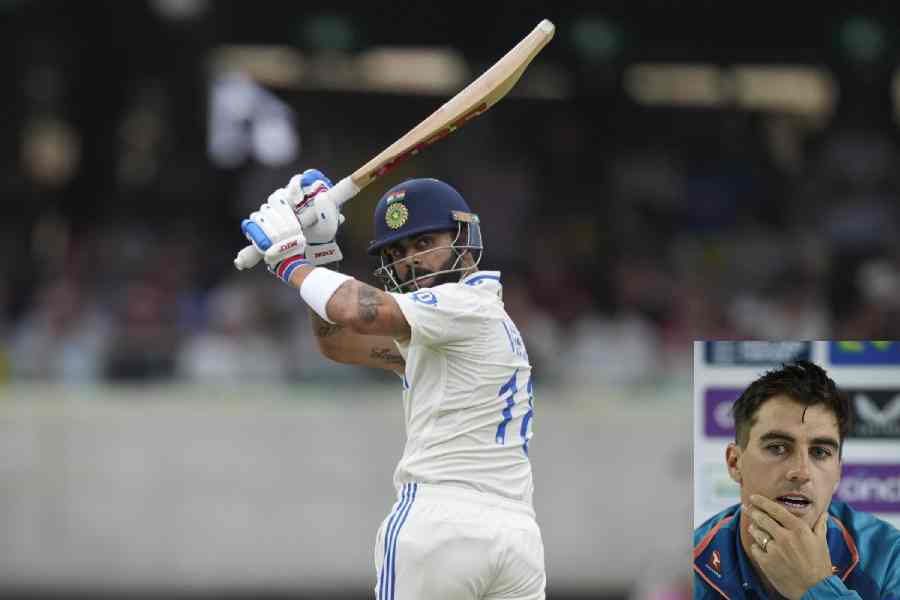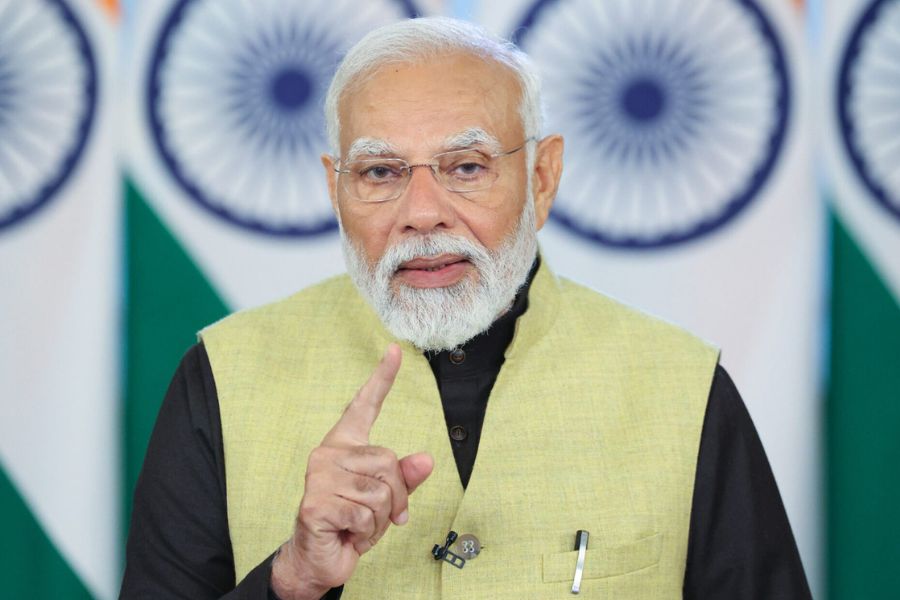Rajasthan chief minister Ashok Gehlot on Thursday described the top BJP leadership as “conspirators” who invent fake issues to defame political rivals and mislead voters, as a bitter and rancorous campaign for the Assembly elections ended.
Incensed by Prime Minister Narendra Modi and Union home minister Amit Shah harping on some mysterious “red diary” as evidence of corruption, the Congress veteran said: “The BJP hatched a conspiracy in the middle of the elections in Rajasthan and Chhattisgarh, creating a hype around the Mahadev App and the red diary. This should be investigated by a retired Supreme Court judge.”
Gehlot added: “Statements are issued about the Mahadev App by the Enforcement Directorate and the BJP. The person on whose behalf the statement was made has disowned the statement, exposing the ED. He has written a 10-page letter explaining how he was pressured. Who pressured him? Who hatched the conspiracy? The BJP wants to win the election through conspiracies. There seems to an elaborate planning. They are conspirators.”
Insisting that the credibility of the ED, CBI and the income tax department should remain intact, Gehlot said: “Instead of debating our performance and legislations, they got our state unit chief raided. There were 50 raids by the ED and the IT in Rajasthan. Notices were issued to my son and the state (Congress) chief’s son. They have the ED and IT, why don’t they give the red diary to them for an investigation? Where are they dragging this country to? They are doing politics at a very low level.”
Prime Minister Modi has himself talked about the “red diary” at several public meetings, creating an impression that it contained proof of corruption. In Chhattisgarh, the BJP’s entire election strategy rested on the Mahadev App, with an unverified statement about Rs 508 crore being given to chief minister Bhupesh Baghel becoming the main weapon to blacken the Congress’s face. Selective details of the “red diary” were leaked to the media on Thursday, two days before voting in Rajasthan.
The fabric of the Congress and BJP campaigns was entirely different in Rajasthan. While the Congress focused on its guarantees and Modi’s failures, the BJP raised issues like Muslim appeasement, the murder of a Hindu tailor by two Muslim youths in Udaipur, disturbances during festivals, and the construction of the Ram temple in Ayodhya. Shedding its reservation to what Modi described as “revdi culture”, the BJP also tried to match the Congress in sops.
To the Congress’s credit, it has managed to stay in the race on the sheer strength of its performance. Wrapping up the intense campaign, Rahul on Wednesday visited a hospital to meet patients benefited by the Chiranjeevi scheme in which health insurance up to Rs 25 lakh is given to citizens. The amount has now been increased to Rs 50 lakh. Rahul tweeted: “Modiji, this is called guarantee — of offering help in distress, of walking together shoulder-to-shoulder. Come to Rajasthan if you want to see this.”
Though most reports suggest a fierce competition, the Congress model of relying on welfare schemes will come under severe stress if the BJP manages to wrest power in the state. Even BJP supporters and Congress critics praise the Gehlot government’s work and there is no apparent anti-incumbency visible. But there is a dormant desire for change among a section of people. What is to be seen is how big this section of voters is, and whether the muddled strategy of the BJP to sideline its most important leader in the state, Vasundhara Raje, affects the party’s prospects.
If the Congress defies the tradition of change every five years and retains power in Rajasthan, its assessment of Modi’s fading popularity will get credence. Even the limitations of communal politics could get exposed after the Karnataka elections as the BJP tried its best to polarise the voters on religious lines.










